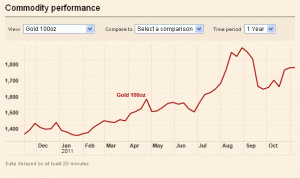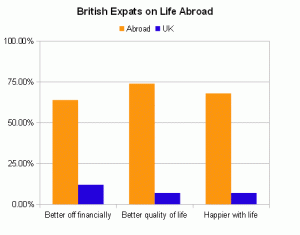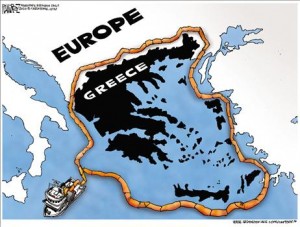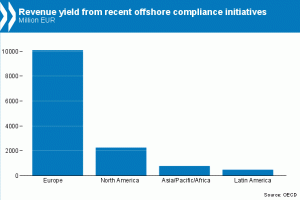
Expats have less faith in banks abroad, according to preliminary results from Just Landed and Lloyds' Expat Banking Poll.
The preliminary results of Lloyds’ and Just Landed’s Expat Banking Poll are in, bringing a couple surprises with them.
So far respondents have shown a strong desire for more secure investments, even if it means sacrificing returns. This extends from investment portfolios down to current and savings accounts.

Greece's woes may yet have a silver lining, according to Stuart Orchard, founder and owner of XpatAthens.com.
Greek locals aren’t the only ones suffering the harsh reality of the debt crisis. Expats are under increasing pressure as companies eliminate assignments and strikes disrupt businesses linked to tourism.
But in every crisis there is opportunity, and Greece is no exception. Stuart Orchard, owner of XpatAthens.com, tells us how more reasonable property prices could attract a new flow of expatriate investors.
The age of fiscal austerity and sovereign debt crises has further sullied UK expats’ opinions of life at home. So much so that many don’t plan to go back. Ever.
Over 800,000 Brits canceled plans to return to the UK in 2011, according to a report from Lloyds TSB International. On top of that, a full 69% say they have no intention of returning to the UK at all–a 13% increase over last year.
The European debt crisis seems to be grinding toward a decisive conclusion after a revolt within the Greek Prime Minister’s cabinet. PM George Papandreou had wanted to put Greece’s euro membership to a referendum, but a number of cabinet members–including his deputy finance minister–have refused. Several socialist MPs have also declared opposition to the referendum, destroying the ruling party’s majority.
“Take the latest bail-out or leave, and decide quick ,” has essentially been the response from Germany and France.
If Greece leaves the euro it is almost certain to default on its debt. In fact, one could argue Greece has actually been defaulting for some time now, though on the face of it bondholders have “voluntarily” taken losses in the interest of European solidarity.
So what does that mean for Greece and the euro? Is it 2008 all over again? Might the sky actually fall?
Finance firms based in Jersey were recently lauded by the Global Forum on Transparency and Exchange of Information for Tax Purposes, tasked with assessing how well the sector responded to international standards for tax information.
Jersey has responded to 84 information requests to date, and was described by the forum as being “effective and expeditious” with its responses. The Peer Review Group that assessed Jersey also commented that its firms tended to respond much faster than those in other territories. The island was one of two non-OECD jurisdictions to participate in the review.
Jersey met the Group’s standards in six of the nine areas under review and the government has announced that changes are being made to ensure the island is fully compliant. While areas for improvement were recommended, they were not in areas that prevented Jersey from engaging in effective information exchange.

HSBC Egypt and CIB are accused of pressuring rights organizations, opening the door to broader concerns about the security of expats' money in Egypt.
Egyptian banks, including HSBC Egypt and Commercial International Bank (CIB) are being accused of helping the country’s military government crack down on activists. The Independent’s Alastair Beach wrote that, “[human rights groups and NGOs] which hold accounts with the global banking giant, say that over the past two months HSBC has contacted them requesting documents and information relating to their finances and work in Egypt.”
What does this have to do with expats?
First, if you happen to be an aid worker, human rights activist or journalist, the military government could be making a concerted effort to access your employer’s (and your own) financial records.
Indirectly, however, it’s an indication that major Egyptian banks are willing to collude with the military, even if it means putting the government’s wishes ahead of their clients’ best interests. This is not the first time, after all, that Egyptian banks have made an appearance here on Expat Wealth.

Foreigners in Italy remitted EUR 6.6 billion in 2010, according to a recent report from Western Union and Caritas.
Remittances from Italy fell 2.9% in 2010, to EUR 6.6 billion, even as worldwide remittances increased 5.5%. The statistics were released in the 2011 Statistical Dossier on Immigration put out by Western Union and Caritas, which aims to provide an accurate picture of the financial state of Italy’s migrant population.
The fall in remittances was linked not only to the general decline in the Italian economy but also a 35.6% drop in the Tuscany region.This was itself the result of tighter controls on illegal money transfer operations, which impacted the large Chinese communities in Florence and Prato.
Nonetheless, Italy remains the world’s fifth largest source of remittances worldwide. The total amount of money sent abroad from Italy is expected to reach EUR 17 billion by 2015.





